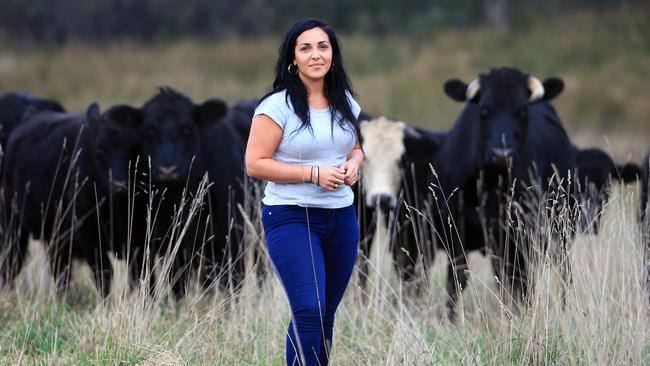Covid Victoria: Agriculture employer responsibilities for vaccine mandate
Victorian employers will be responsible for ensuring their workers are vaccinated from Friday or risk hefty fines. Here’s what is required.
Victoria’s agriculture industry is only days away from being required to have all workers vaccinated against Covid-19.
The vaccine mandate was announced in a press conference on October 1, allowing two weeks for those on the state’s Authorised Workers list, which includes agriculture, to get their first dose of a Covid-19 vaccine by October 15. Workers must then be fully vaccinated by November 26.
As the deadline approaches, the Victorian Farmers Federation has described this week an “alarming sense of confusion” over the mandate causing “huge angst” within the industry.
The VFF, along with AusVeg Victoria, Fruit Growers Victoria, Food and Fibre Gippsland, GrainGrowers, Citrus Australia and Melons Australia have issued a joint statement asking the following questions of the Victorian Government:
WILL employers be left in the lurch about whether their workers can work?
ARE employers going to be at risk under industrial relations laws?
HOW do we avoid breaches of worker’s privacy and who can request this personal information of vaccination status?

“We’re only days away from the vaccine mandate coming into force and many of our basic questions seem to have been placed in the too-hard basket,” VFF president Emma Germano said.
“Industry groups have been talking to farmers non-stop since the announcement was made and all of us just want to be able to pass on accurate information and support our growers in a timely manner.
“We are also seeking urgent clarity on the types of exorbitant penalties and exactly who can issue them.”
Agriculture Minister Mary-Anne Thomas’ office told The Weekly Times audits might be conducted where businesses might be asked to show they had met their obligations to collect, record and hold proof of employee vaccination.
“The Victorian Government’s dedicated Industry Engagement and Enforcement Operation will continue to enforce public health directions relating to workplaces, including the vaccination requirements for workers, and businesses should expect a visit at any time from our Authorised Officers, who can issue infringement, prohibition or improvement notices,” a Victorian Government spokeswoman said.
The operation is co-led by the Department of Justice and Community Safety and Department of Jobs, Precincts and Regions.
Here are some of your most commonly asked questions, answered.
WHO WILL BE RESPONSIBLE FOR ENFORCING VACCINATION REQUIREMENTS?
Employers of Authorised Workers are responsible and must collect, record and hold vaccination information for any worker going on-site for work.
From October 15, employers must not allow anyone who is working away from home who has not received their first vaccination or made an appointment to receive their first dose by October 22 (or who isn’t exempt) to work on site.
WHAT INFORMATION SHOULD BE RECORDED BY EMPLOYERS?
A record should include:
The name of the worker or individual accessing the site
Their vaccination status
Their vaccine appointment booking (if relevant)
Who sighted the evidence
The date the evidence was sighted
The nature of that evidence (for example, Covid-19 vaccine digital certificate, immunisation history statement, or medical exception letter or certificate)
WHAT EVIDENCE OF VACCINATION CAN BE USED?
Immunisation history statement available from Medicare, MyGov Covid-19 digital certificate, My Health Record and Medicare online account, and proof of age or document or proof of relevant medical exemption.
WHAT DOES AN EMPLOYER DO IF AN EMPLOYEE WON’T GET VACCINATED?
If the employee does not have a medical exemption, the employer is required to take reasonable steps to prevent entry of unvaccinated workers, or workers who choose to not disclose their vaccination status.
WHAT IF AN EMPLOYEE WON’T DISCLOSE THEIR VACCINATION STATUS?
The worker can choose not to disclose, but that worker will then be considered unvaccinated for the purposes of work.
WHAT IS THE PENALTY FOR AN EMPLOYER WHO ALLOWS AN UNVACCINATED WORKER TO CONTINUE WORKING?
Individuals face a penalty of up to 120 penalty units ($21,808) and corporations up to 600 penalty units ($109,044).
WHAT IS THE PENALTY FOR AN UNVACCINATED EMPLOYEE?
No fine if you do not meet the vaccination requirements, but if you are unable to attend work, or you cause your workplace to incur a large fine, this may affect your employment, contract or placement.
WHAT DATA AND PRIVACY REQUIREMENTS DO EMPLOYERS NEED TO MEET?
All details should be recorded and securely kept for the duration necessary.
A person’s vaccination status must be collected, used, managed, stored, disclosed, or transferred in accordance with relevant Federal (Privacy Act 1988) and Victorian (Privacy and Data Protection Act 2014, Health Records Act 2001) legislation.
This includes informing employees about why their vaccination status is being collected, collecting only the minimum amount of information required, disclosing the information on only a “need-to-know” basis and taking reasonable steps to keep the information secure.
CAN AN EMPLOYER LEGALLY REQUIRE AN EMPLOYEE TO BE VACCINATED?
FairWork says employers can require their employees to be vaccinated where a specific law (such as a state or territory public health order) requires an employee to be vaccinated.
More information can be found on the Victorian Government’s coronavirus website and the FairWork website.
In a special investigation last month, involving more than 60 major Australian agribusinesses and farming bodies, The Weekly Times found mixed reactions to whether the Covid jab should be mandated.
Strict vaccine mandates have been voluntarily rolled out across parts of the sector while other major agribusinesses vocally supported personal choice.
The Victorian Government has also come under fire in the past week after it announced rapid antigen tests would be purchased for government services, including healthcare, schools, corrections and emergency services, but the same was not guaranteed for the food supply chain.



